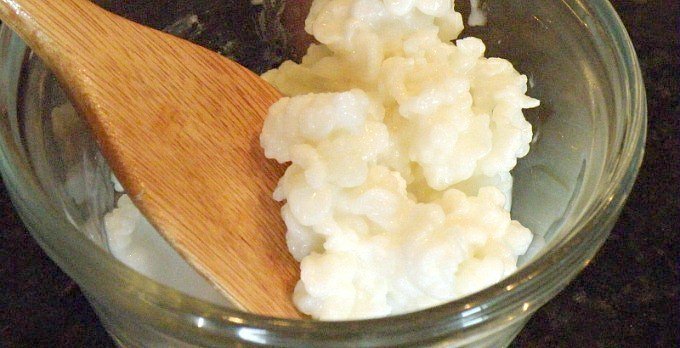Kefir is a tangy and yogurt-like drink which is can also be considered “a living drink”. Why? Because it is a probiotic drink! Not only is kefir for gut bacteria a good idea, but it is also beneficial for the gut health of an individual.
This drink is loaded with nutrients, is beneficial for gut bacteria, has antibacterial properties, low in lactose and to top it off, it has other health benefits too! Interested? Let’s get started!
Fun fact: “Kefir” came from the work Keyif, meaning “feeling good” after eating.
What is Kefir?
Kefir is a fermented drink usually made from cow or goat’s milk. You can also choose sheep’s milk, coconut milk, rice, and soy milk too! It is probably from a North Caucasian origin and is known in Latin America as búlgaros. It means “Bulgarian drink”.
There are two parts that made the kefir drink: Kefir grains and the drink base or milk.
Kefir culture in the form of grains is added to the milk and then you let the fermentation process to take place. Fermentation is breaking down of a certain substance with the help of microorganisms like bacteria and yeast. Beer and other liquors are produced this way.
The kefir grains may look like cauliflower or white porridge. The economic part about the grain is that you can remove them from the milk mixture after fermenting so that you can use it again.
What’s in the grain, you ask?
Well, this grain-lookalike are beads containing a mix of yeasts and bacteria that ferments the milk. After around 24 hours of fermentation at room temperature, the grains are removed from the milk. This can then be transferred to a different batch of milk for more kefir.
#1 Many Nutrients
If you chose dairy-based kefir, you’re up and loaded with the calcium and protein content of the milk. It’s like a value-added add-on when you buy a product.
It also has:
- Phosphorus
- Vitamin B12
- Riboflavin (B2)
- Magnesium
- Vitamin D
Now if you chose the non-dairy route, you will also get a different batch of nutrients which depends on the base that you chose. For example, by making kefir from soya milk, you’ll end up with the nutrients of said soya milk plus the effect of kefir.
#2 Kefir for Gut Bacteria
Probiotics are different from prebiotics. A probiotic is a mix of healthy and beneficial microorganisms that can help improve gut health. It helps by aiding digestion, absorption of nutrients and bowel movement.
Prebiotics, on the other hand, are the food of the microorganisms in the gut. The usual probiotics are carbohydrates and fibers which the gut microbiome enjoy digesting.
We are all familiar with yogurt, but if you want a probiotic with more punch, you can try drinking kefir. It has more diverse microorganism strains than yogurt. The grains can contain up to 61 different strains of bacteria and yeasts.
So Kefir for gut bacteria? YES! Give me that extra healthy microorganism, please!
#3 Antibacterial Properties
So, it contains bacteria but is also antibacterial? How is that even possible?
Now, of all the different strains of bacteria and yeast in kefir, some can remain in the gut for a long time.
There is also this unique probiotic called Lactobacillus kefiri. As the name suggests, it is only found in kefir. This specific probiotic can help stop the growth of harmful bacteria like E. coli, Salmonella, and Helicobacter pylori.
As a bonus, there is also Kefiran, a carbohydrate in Kefir that also has antibacterial properties. It also has various food and pharmaceutical applications.
#4 Low in Lactose
What? It is low in lactose?
But it’s milk-based!
That’s right. Kefir, even if it has milk as a base, is low in lactose. This is good news for those with lactose intolerance. The lactose found in the dairy milk is converted to lactic acid.
In addition to that, some of the microorganisms in the kefir also helps in digesting the lactose even further.
This is helpful for lactose-intolerant people that want to drink “milk”.
Given that you can make a kefir drink from non-dairy products, it means that you automatically get a lactose-free probiotic.
Got almond milk? Make almond milk kefir!
A fan of coconut milk? Make a coconut milk kefir!
Wanna try something different? Go make water kefir. Yes! It’s a thing.
#5 Some Bonuses
This part is related to Kefiran, the carbohydrate with antibacterial property. So not only is it good for the gut, but it can also help lower blood pressure and cholesterol. The catch is that this study is in animal studies so far. Further studies involving humans should be done.
In another animal study, kefir can suppress inflammatory responses like allergies and asthma.
Now, depending on your milk base for kefir, you can get different nutrients, right? By going for full-fat kefir, you are also taking in Calcium and vitamin K2. The great thing about Vitamin K2 is that it helps in calcium metabolism.
So now you have both the calcium, and another vitamin to metabolize calcium!
Kefir is an interesting probiotic drink. The possibilities are endless with the different bases that you can use to make kefir. You can go get dairy-based kefir, soy-milk based kefir, coconut milk, or even water kefir. Not only is kefir a good source of probiotics, but it may also help boost the immune system, bone health and may aid in digestive problems too.
Kefir is a probiotic drink that is easy to make. And, it also has added perks from the health benefits that it provides. Kefir for gut bacteria? Sure! Kefir for the body? Why not? The best part is that you can make your own kefir drink at home. All you need is the milk base and the kefir grain. To boost it more, you can add other prebiotic food items, eat it with oatmeals, or spazz it up with flaxseed! Now go get yourself a kefir drink!
Have you ever tried to make kefir? How did it go?
[thrive_toggles_group”][thrive_toggles title=”References” no=”1/1″]https://www.healthline.com/nutrition/9-health-benefits-of-kefir#section10 https://www.webmd.com/food-recipes/features/why-is-kefir-good-for-me#1 https://www.bbcgoodfood.com/howto/guide/health-benefits-kefir https://en.wikipedia.org/wiki/Kefir https://www.ncbi.nlm.nih.gov/pubmed/17869642 https://www.ncbi.nlm.nih.gov/pubmed/19099229 https://www.sciencedirect.com/science/article/abs/pii/S0144861719307672[/thrive_toggles][/thrive_toggles_group]



